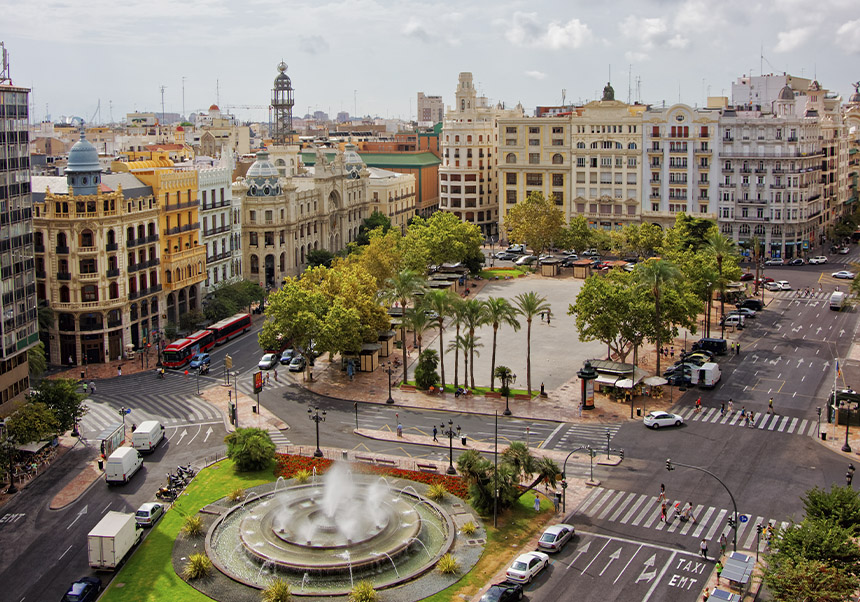This project aims to evaluate the medium-term socio-economic impact of the pandemic in the main metropolitan areas of Spain (Madrid, Barcelona, València and Zaragoza), to analyse its territorial consequences and to study the adaptive response and implemented strategies by different urban agents (companies, citizens and local administration) in order to overcome or minimise the crisis effects and sort out policy and urban govern model implementation lessons that will contribute to face the social and economic challenges in the coming years.
The starting hypothesis is that large Spanish cities, regardless of the pandemic, provide development conditions for strategic clusters in intensive activities of creativity and knowledge that should lead the restoration and that adaptation and survival strategies are being developed in those cities by companies, citizens and administration that could become a tool to overcome or minimise the crisis.
The project studies different aspects that have been proven decisive in the last years, but their working has been altered in the new context:
- The intensification of knowledge use, remote working and technology within companies.
- Human capital role in a spatial interaction reduction case between people and companies.
- The changes in quality of life created by the mobility restrictions with its productive space geography implications (remote working, coworking) and intensification of sustainable transport use.
- The increase of innovative responses against the social crisis created by to civil society. Since these new initiatives and alternative proposals require new governments and participative planning tools, the project analyses the institutional environment and the role of mobilisation or paralysation of innovative proposals in response to the crisis as well.
The methodology combines quantitative and qualitative approximations, which incorporates statistic and network analyses about the studied cities (Madrid, Barcelona, València and Zaragoza) as specific cases that enhance the qualitative tools (surveys, interviews, focal groups, debate forums).
The project is structured in three subprojects managed by researchers of Universitat de València, Autonomous University of Barcelona and Complutense University of Madrid (PID2020-112734RB-C31, ID2020-112734RB-C32 and PID2020-112734RB-C33),with the participation of 58 researchers from 6 Spanish universities, 8 foreign universities from Europe and America and support of 26 urban agents, entities and administrations of the analysed territories.









